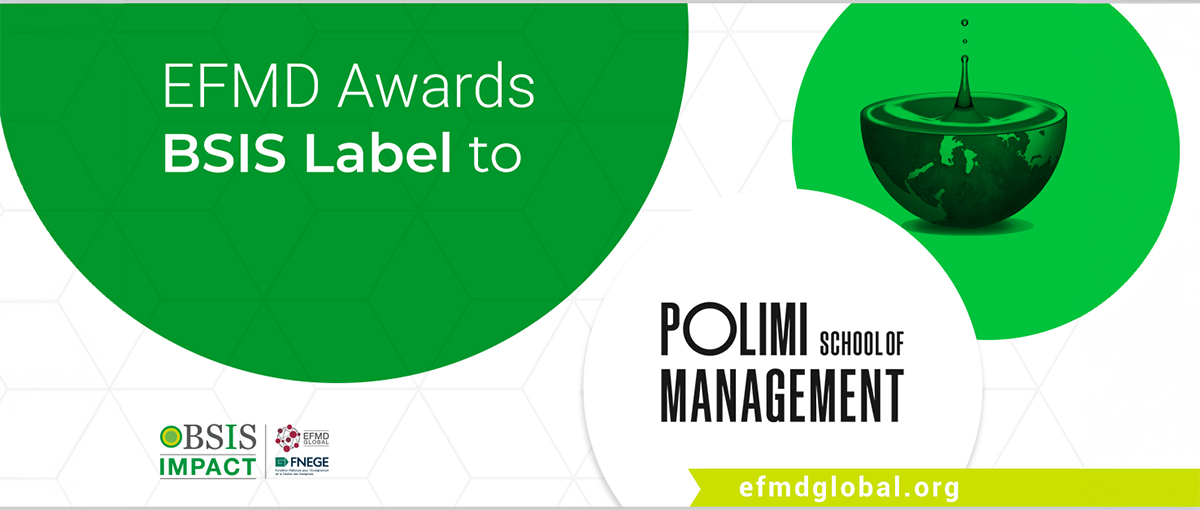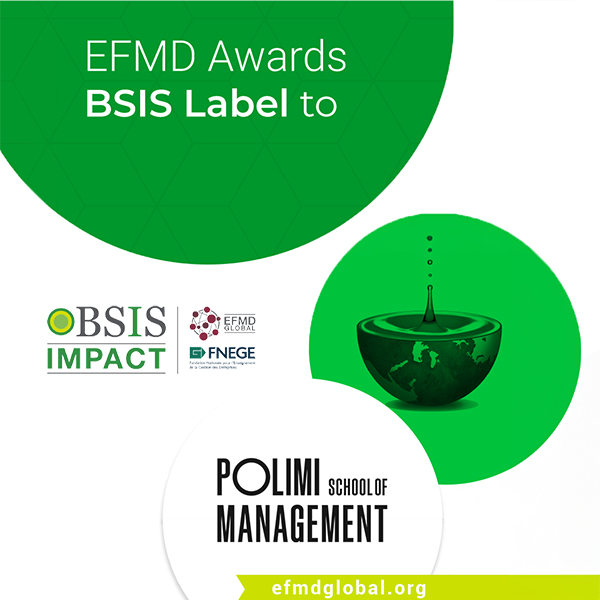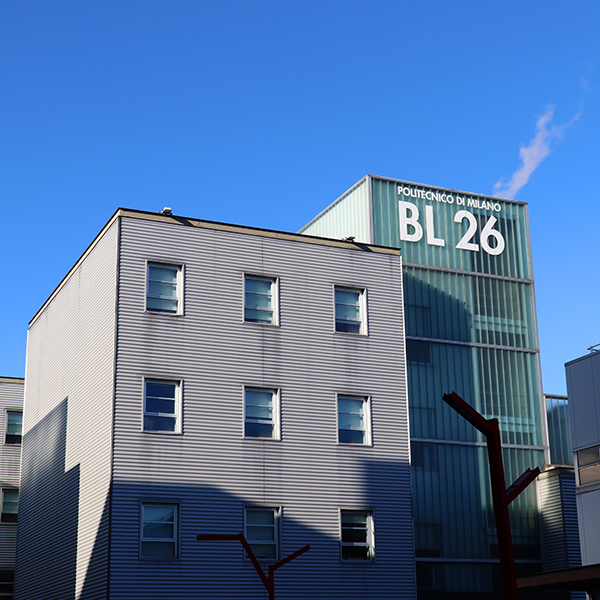
The School of Management of Politecnico di Milano has successfully completed the BSIS (Business School Impact System) assessment process, confirming its important role at an international level in the academic and social arena.
BSIS is a tool promoted by the European Foundation for Management Development (EFMD) − one of the three most important accreditation bodies in the world − which assesses the impact of business schools on their geographical areas and society as a whole. Through this process, the School has seen its commitment to contributing positively to society through academic, research and collaboration activities with local businesses and institutions certified and measured
BSIS: the essential meaning and value of the process
The BSIS assessment is a crucial tool for assessing the impact of business schools on the surrounding environment and provides a comprehensive framework for understanding the contribution of academic institutions to their socio-economic context.
The impact of business schools is analysed in seven main areas: financial, including both the school’s direct budget and the indirect financial flow generated in the region; educational, reflecting the influence of programmes on the local management community; business development, including the creation of new businesses and support for existing services; intellectual, through the output of the teaching staff and the contribution to local cultural life; within the regional ecosystem, involving the teaching staff and participants in public life and integration with other institutions; social, relating to CSR policies and sustainable development integrated into teaching and management; and image, assessing the school’s local, national and international reputation and its effect on the impact zone.
The evidence which emerged from the report for our institution
The BSIS assessment recognised the School’s strong capabilities in all the areas considered.
Starting from its product portfolio aligned with the country’s areas of excellence, the School has proven to uniquely integrate management, technology and humanities, thus creating an innovative and stimulating learning environment.
The assessment also highlighted the importance of key projects launched by the School to promote social innovation and address global challenges. Prominent among these projects are “Leave Your Mark”, which gives non-profit organisations the opportunity to benefit from the pro bono work of faculty, alumni and students, and the “Innova Europe” and “SoM Prize for SDGs” challenges, which respectively recognise SDG-based start-ups founded by students and alumni from top European business schools, and the work of our alumni to solve contemporary social challenges.
In addition, the School is actively committed to supporting the fight against climate change and promoting environmental sustainability. Through initiatives such as the financing of projects in countries such as India, Madagascar and Ecuador, and the financial support received from the Italian Ministry of University and Research for the HumanTech − Humans and Technology project, the School is positioned as a reference point in the field of sustainability and innovation.
“At the School of Management of Politecnico di Milano, societal impact is a pivotal principle of our vision and mission. Besides being fully aware of our role in society, we already had a comprehensive approach to assessing the impact of our research activities; nevertheless, thanks to the BSIS framework, we realised that there were more dimensions to consider in order to enhance our overall effectiveness in our impact zone.
In this perspective, the recommendations that have emerged from the assessment are very valuable to support our School in implementing new measurement methodologies and activities to reach the ambitious goals we have set in our strategic plan. In this respect, the assessment challenges us to utilise impact measurement to support − and emphasise − our commitment and achievements, thus providing even more consistency to our mission.”
Raffaella Cagliano, Academic Director, School of Management del Politecnico di Milano
Per maggiori informazioni: https://blog.efmdglobal.org/2024/03/20/polimi-school-of-management-awarded-bsis-label/










